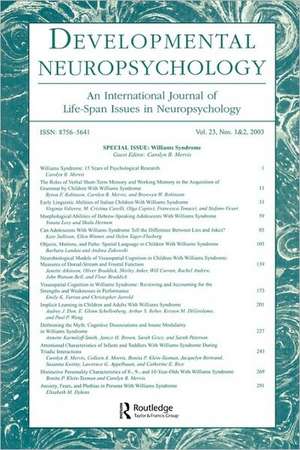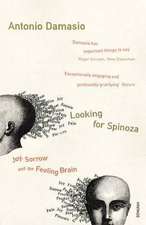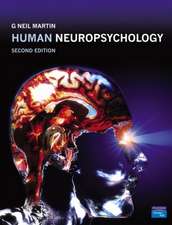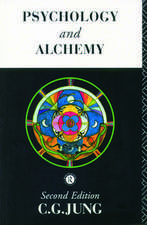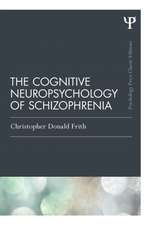Williams Syndrome: A Special Double Issue of developmental Neuropsychology
Editat de Carolyn B. Mervisen Limba Engleză Paperback – apr 2003
Preț: 589.94 lei
Preț vechi: 694.05 lei
-15% Nou
Puncte Express: 885
Preț estimativ în valută:
112.90€ • 117.56$ • 95.42£
112.90€ • 117.56$ • 95.42£
Carte tipărită la comandă
Livrare economică 07-21 martie
Preluare comenzi: 021 569.72.76
Specificații
ISBN-13: 9780805896121
ISBN-10: 0805896120
Pagini: 320
Dimensiuni: 152 x 229 x 17 mm
Greutate: 0.59 kg
Ediția:1
Editura: Taylor & Francis
Colecția Routledge
Locul publicării:Oxford, United Kingdom
ISBN-10: 0805896120
Pagini: 320
Dimensiuni: 152 x 229 x 17 mm
Greutate: 0.59 kg
Ediția:1
Editura: Taylor & Francis
Colecția Routledge
Locul publicării:Oxford, United Kingdom
Public țintă
ProfessionalCuprins
Volume 23, Numbers 1 and 2, 2003
Contents: C.B. Mervis, Williams Syndrome: 15 Years of Psychological Research. B.F. Robinson, C.B. Mervis, B.W. Robinson, The Roles of Verbal Short-Term Memory and Working Memory in the Acquisition of Grammar by Children With Williams Syndrome. V. Volterra, M.C. Caselli, O. Capirci, F. Tonucci, S. Vicari, Early Linguistic Abilities of Italian Children With Williams Syndrome. Y. Levy, S. Hermon, Morphological Abilities of Hebrew-Speaking Adolescents With Williams Syndrome. K. Sullivan, E. Winner, H. Tager-Flusberg, Can Adolescents With Williams Syndrome Tell the Difference Between Lies and Jokes? B. Landau, A. Zukowski, Objects, Motions, and Paths: Spatial Language of Children With Williams Syndrome. J. Atkinson, O. Braddick, S. Anker, W. Curran, R. Andrew, J. Wattam-Bell, F. Braddick, Neurobiological Models of Visuo-Spatial Cognition in Children With Williams Syndrome: Measures of Dorsal-Stream and Frontal Function. E.K. Farran, C. Jarrold, Visuo-Spatial Cognition in Williams Syndrome: Reviewing and Accounting for the Strengths and Weaknesses in Performance. A.J. Don, E.G. Schellenberg, A.S. Ruber, K.M. DiGirolamo, P.P. Wang, Implicit Learning in Children and Adults With Williams Syndrome. A. Karmiloff-Smith, J.H. Brown, S. Grice, S. Paterson, Dethroning the Myth: Cognitive Dissociations and Innate Modularity in Williams Syndrome. C.B. Mervis, C.A. Morris, B.P. Klein-Tasman, J. Bertrand, S. Kwitny, L.G. Appelbaum, C.E. Rice, Attentional Characteristics of Infants and Toddlers With Williams Syndrome During Triadic Interactions. B.P. Klein-Tasman, C.B. Mervis, Distinctive Personality Characteristics of 8-, 9-, and 10-Year-Olds With Williams Syndrome. E. Dykens, Anxiety, Fears, and Phobias in Persons With Williams Syndrome.
Contents: C.B. Mervis, Williams Syndrome: 15 Years of Psychological Research. B.F. Robinson, C.B. Mervis, B.W. Robinson, The Roles of Verbal Short-Term Memory and Working Memory in the Acquisition of Grammar by Children With Williams Syndrome. V. Volterra, M.C. Caselli, O. Capirci, F. Tonucci, S. Vicari, Early Linguistic Abilities of Italian Children With Williams Syndrome. Y. Levy, S. Hermon, Morphological Abilities of Hebrew-Speaking Adolescents With Williams Syndrome. K. Sullivan, E. Winner, H. Tager-Flusberg, Can Adolescents With Williams Syndrome Tell the Difference Between Lies and Jokes? B. Landau, A. Zukowski, Objects, Motions, and Paths: Spatial Language of Children With Williams Syndrome. J. Atkinson, O. Braddick, S. Anker, W. Curran, R. Andrew, J. Wattam-Bell, F. Braddick, Neurobiological Models of Visuo-Spatial Cognition in Children With Williams Syndrome: Measures of Dorsal-Stream and Frontal Function. E.K. Farran, C. Jarrold, Visuo-Spatial Cognition in Williams Syndrome: Reviewing and Accounting for the Strengths and Weaknesses in Performance. A.J. Don, E.G. Schellenberg, A.S. Ruber, K.M. DiGirolamo, P.P. Wang, Implicit Learning in Children and Adults With Williams Syndrome. A. Karmiloff-Smith, J.H. Brown, S. Grice, S. Paterson, Dethroning the Myth: Cognitive Dissociations and Innate Modularity in Williams Syndrome. C.B. Mervis, C.A. Morris, B.P. Klein-Tasman, J. Bertrand, S. Kwitny, L.G. Appelbaum, C.E. Rice, Attentional Characteristics of Infants and Toddlers With Williams Syndrome During Triadic Interactions. B.P. Klein-Tasman, C.B. Mervis, Distinctive Personality Characteristics of 8-, 9-, and 10-Year-Olds With Williams Syndrome. E. Dykens, Anxiety, Fears, and Phobias in Persons With Williams Syndrome.
